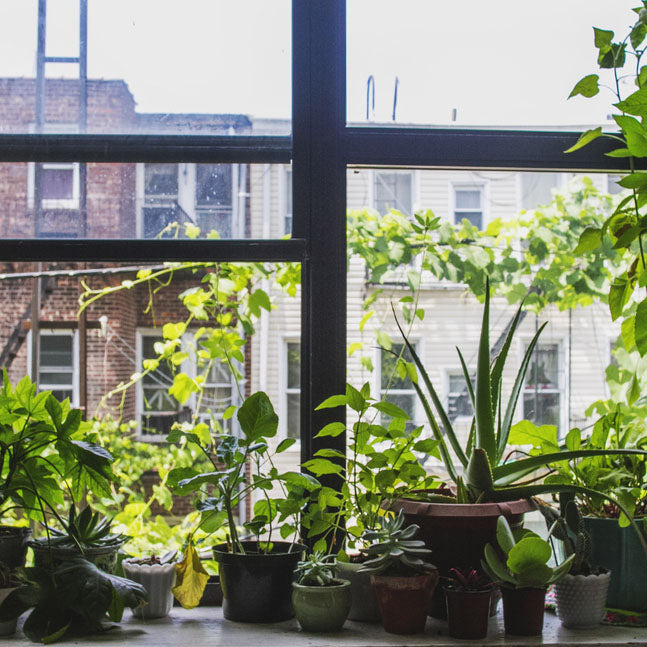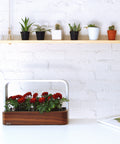
It's a common misconception that if you live in the city, you can't have a garden of your own. However, there are numerous ways to become an urban gardener, adding herbs, vegetables, and flowers to your living space. You don't need a large open space to have a garden. In fact, all you really need is soil, light, water, and seeds. If you stop thinking in terms of large fields and garden plots and start thinking more minimally, you may be pleasantly surprised at just what you can accomplish with a city garden. There are numerous ways to grow the garden you've always wanted in an urban area, including the following:
Balcony Gardening

If your apartment or city home has a balcony, you may already have the perfect outdoor space for a garden. Many of these balconies are small and narrow, not large enough to use for patio furniture or to lounge on, but just the right size to install a small garden. This can easily be done by first measuring the area carefully to determine how many pots or planters you can set up on the balcony then going to your neighborhood plant store (shop local) to pick up the best plants that will thrive outside in your region. Don't forget that you may also be able to put flower boxes on the balcony railing to grow additional plants in.
Windowsill Gardening

Apartments with limited outdoor space and no balconies often have quite a bit of windowsill space to make up for it. You may be able to start a small garden by installing window boxes on these sills. Be sure to measure carefully, and that the boxes are mounted securely. With some creativity, you'll be able to utilize all of the space you have in windowsills that face the sun. This may allow you to plant a kitchen herb garden, some flowers, or even some easy to grow vegetables.
Container Gardening

Most urban gardening has evolved to container gardening by default. This means that you can find cool containers in all colors, shapes, and sizes that fit in the areas that you plan to garden in. Make sure to purchase dirt that is best suited for what types of plants you plan to grow, and keep your containers fertilized, mulched, and watered. You'll also need to ensure that your containers have a hole in the bottom for proper drainage. If some plants are not drained, their roots will begin to rot and your plant may die - so make sure you choose your containers accordingly. If you'll be mounting your precious containers to railings or windowsills, you'll need to ensure that they’re securely anchored and that the base can support the weight of the full container. Almost everything that can be grown in the ground can be grown in a container if you plan creatively and make sure that the container gets enough water and sunlight.
Smart Gardening

Community Gardening

If you'd prefer to grow a garden in raised beds or in the ground instead of in containers, you should check where your nearest community gardens in located. Often times these gardens are nonprofit or volunteer-based and you can either freely garden or rent a plot for a low cost per year. Usually fee-based gardens will include dirt, mulch, water hookups, and it potentially even seeds or seedlings with access to garden tools. Community gardening is also a fun and easy way to meet members of your community who are also interested in gardening, and you may be able to trade seeds, harvests, and recipes with them as well.
Click on your city below to view community gardens in your area:
• Boston
• Chicago
• Denver
Become An Urban Gardener

Living in the city doesn't mean that you can't have the garden that you've always dreamed of. You can still have a flourishing garden, you just have to be a little more creative about the planning. Spend some time researching the options available to you, then determine what type of urban gardening works best for your lifestyle.
Would you rather have a windowsill garden, a balcony garden, or a container garden? Are there community gardens in your area? Knowing what's available to you will help you make a decision about the urban garden that's best for you.








